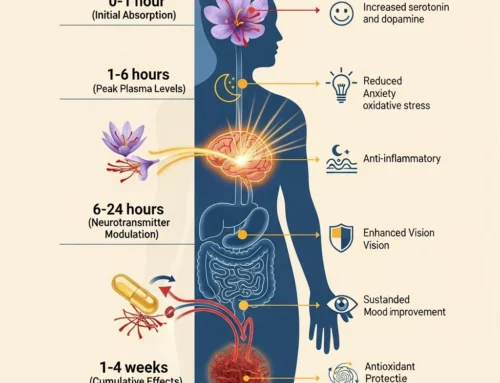Saffron Side Effects: Who Should Avoid This Spice?
Saffron is a popular spice known for its unique flavor and health benefits. However, some individuals may face potential risks when consuming saffron, which are referred to as saffron side effects. It is important to identify who should avoid saffron to prevent these adverse effects.
Pregnancy and Saffron
Pregnant women should exercise caution when consuming saffron due to its potential saffron side effects. Certain compounds in saffron can stimulate uterine contractions, which may lead to premature labor or miscarriage, especially if consumed in large amounts. To ensure safety, pregnant women should consult their healthcare provider before using saffron in any form.
Blood Disorders and Saffron
People with blood disorders should be cautious about consuming saffron because of its anticoagulant properties, which are part of its saffron side effects. Saffron may thin the blood, increasing the risk of bleeding, particularly in individuals taking blood-thinning medications or those with conditions like hemophilia. It is advisable for people in this category to avoid saffron or use it only in moderation under medical supervision.
Allergic Reactions to Saffron
Some individuals may experience allergic reactions to saffron. These reactions are another example of saffron side effects, and symptoms can include skin rashes, itching, or stomach discomfort. Anyone who is allergic to other spices or plants should test saffron in small amounts or consult a doctor before using it.
Low Blood Pressure and Saffron
Individuals with low blood pressure should also be cautious with saffron. One of the saffron side effects is its ability to lower blood pressure, which can cause dizziness or fainting in those who already have hypotension. If you have low blood pressure or are taking medication to manage it, it’s best to limit saffron consumption.
Excessive Saffron Consumption
While saffron is generally safe in moderate culinary amounts, excessive consumption, particularly in supplement form, can lead to harmful saffron side effects. High doses may cause nausea, dizziness, and in extreme cases, toxicity. It’s important to stick to recommended dosages and avoid overconsumption to prevent these negative side effects.
Consulting a Healthcare Provider
If you are unsure whether saffron is right for you, it is best to consult a healthcare professional. They can provide personalized advice based on your health history and needs, ensuring your safety when using saffron and avoiding any saffron side effects.
For more information about high-quality saffron, feel free to visit our selection of all-red saffron.
We hope this guide helps you make informed decisions about incorporating saffron into your diet. Always prioritize safety and moderation with any spice, and remember that each person’s health needs are unique.








Get Social